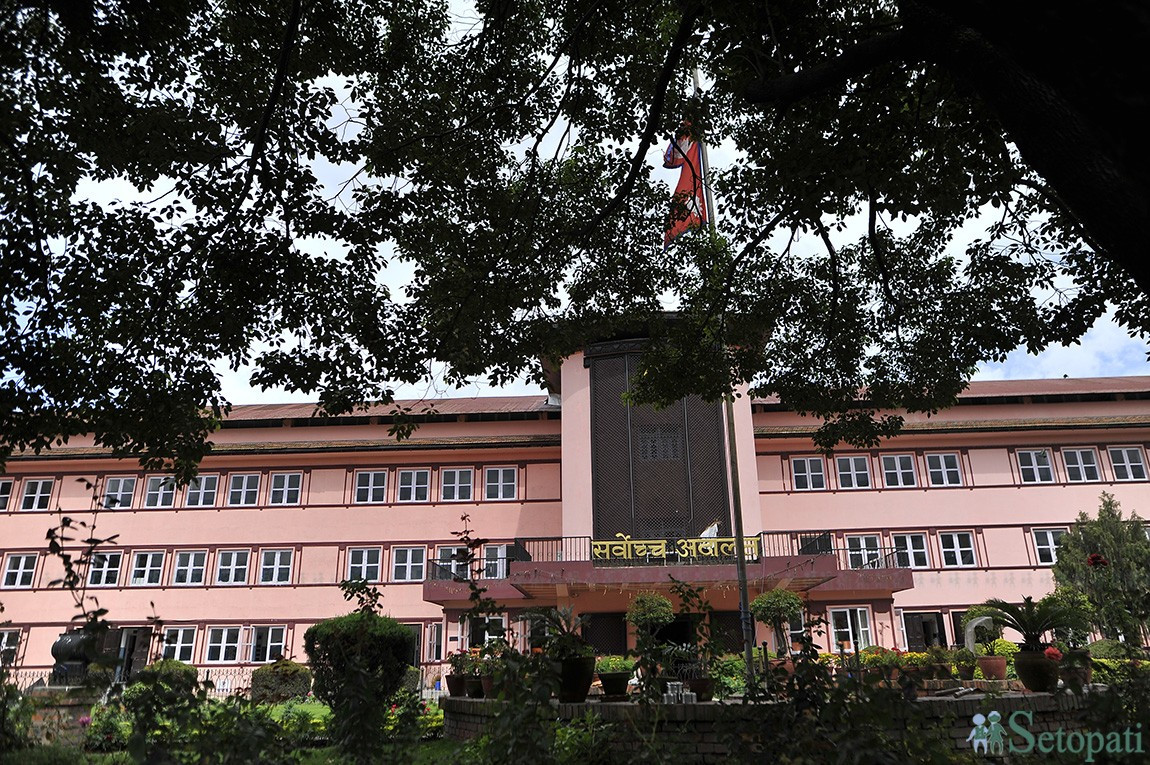The single bench of Justice Bishwambhar Shrestha will hear the writ petitions registered at the Supreme Court (SC) against CPN (Maoist Center) Chairman and Prime Minister (PM) Pushpa Kamal Dahal.
The case is listed as the fourth to be heard by the bench of Shrestha on Thursday, according to the SC website.
The petitions by advocate Gyanendra Aran and Kalyan Budhathoki were registered on Tuesday. Aran and Budhathoki had approached the Supreme Court with separate petitions in November 2022 seeking an order to arrest Dahal and take necessary action against him in connection with conflict-era cases. But the court administration refused to register their petitions stating that conflict-era cases are outside the jurisdiction of the Supreme Court as they would be addressed by the transitional justice mechanism.
Aran and Budhathoki had then appealed against the court administration’s decision.
Hearing their appeal on Friday, a bench of justices Ishwar Khatiwada and Hari Krishna Phuyal had ordered the court administration to register the writ petitions brought by Aran and Budhathoki against Dahal.
Addressing an event organized at Khula Manch in Kathmandu on the occasion of Maghi on January 15, 2020, Dahal had refuted allegations that he had killed 17,000 people during the decade-long Maoist armed conflict but said that he would take responsibility for the deaths of 5,000 of those killed during that period. He had also said that he would take responsibility for all the good and bad things that happened during the armed conflict.
The petition registered on Tuesday seeks an order to arrest Dahal on the basis of the statement he had made then.
The SC reasoned that conflict-era cases cannot be stretched for eternity while ordering to register two writ petitions seeking arrest of CPN (Maoist Center) Chairman and Prime Minister (PM) Pushpa Kamal Dahal.
Justices Ishwar Khatiwada and Hari Phuyal while revoking the administration’s decision to not register the petitions brought by Kalyan Budhathoki of Ramechhap and advocate Gyanendra Aran observed that the petitions were brought raising questions about rights to justice including reparations and compensation due to the citizens who were victims during the armed conflict.
“Criminal justice system should not remain inert, void or in an ineffective state. The issues of the victims getting to know the fact-based information, justice and reparations in the incidents of grave violations of human rights during the period of armed conflict as per the peace agreement, Nepal’s Constitution, this court’s orders, and international laws and principles do not seem appropriate to be kept stuck for eternity showing different reasons.”
The Apex Court ruled that the regular court should register cases demanding order to investigate conflict-era incidents as the bodies for transitional justice seem inactive.
The Truth and Reconciliation Commission (TRC) and the Commission of Investigation on Enforced Disappeared Persons have been formed to resolve conflict-era cases but they have yet to start work in earnest in lack of agreement among political parties.

